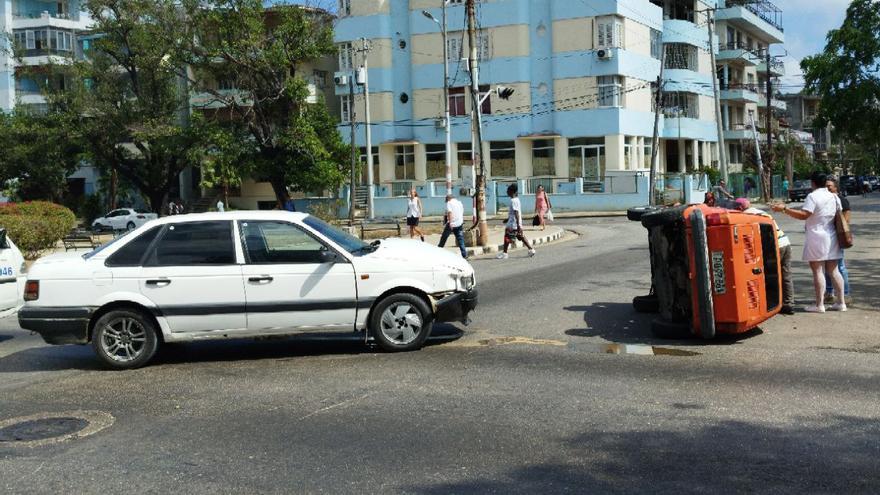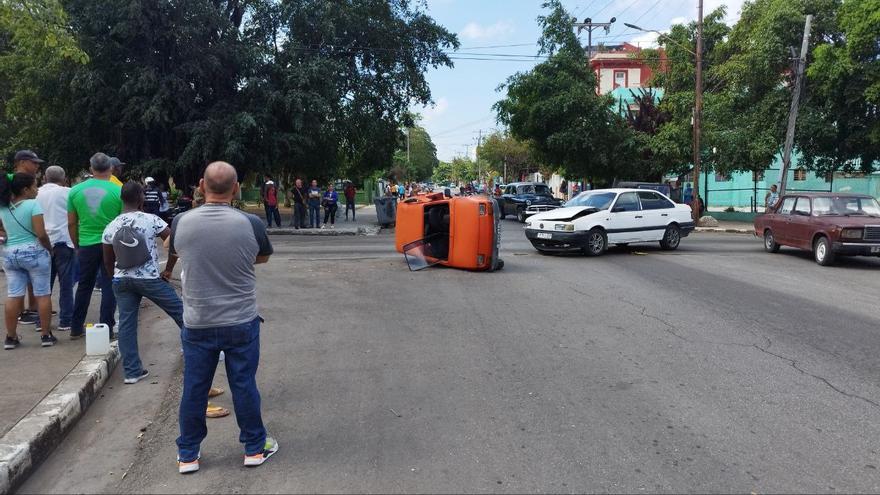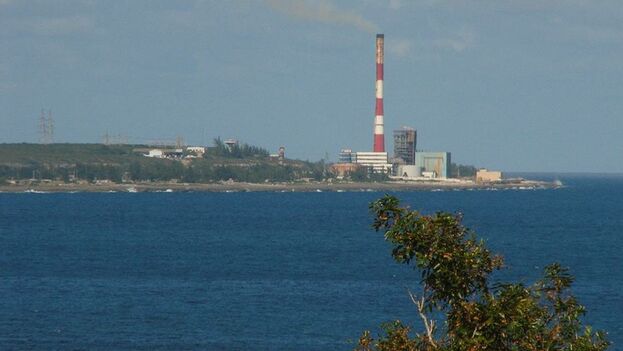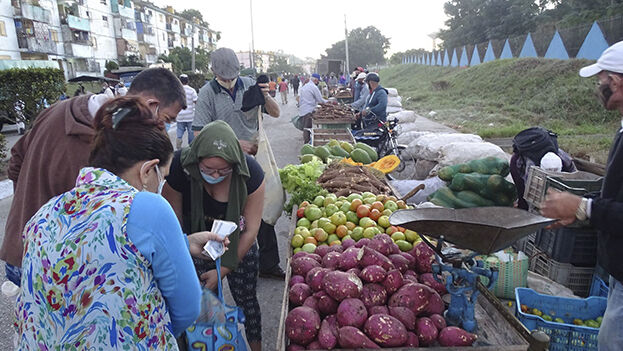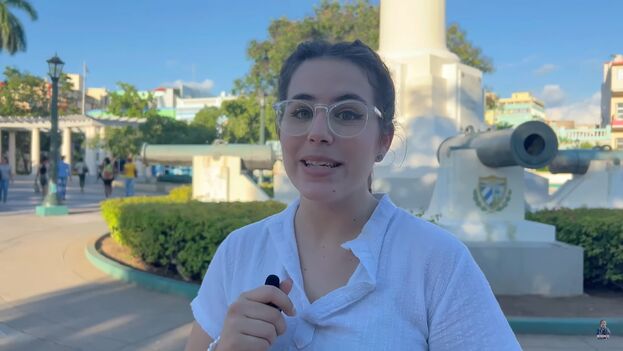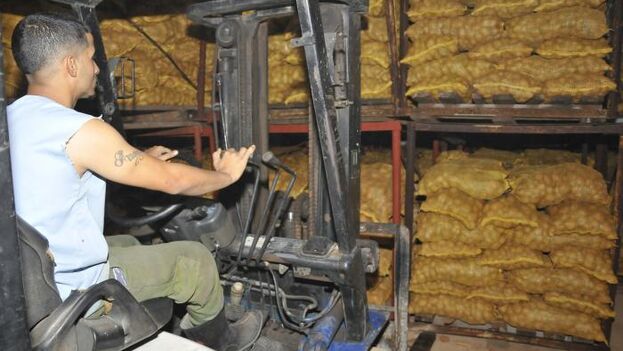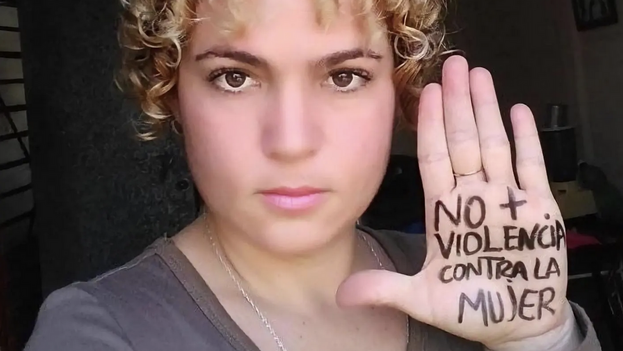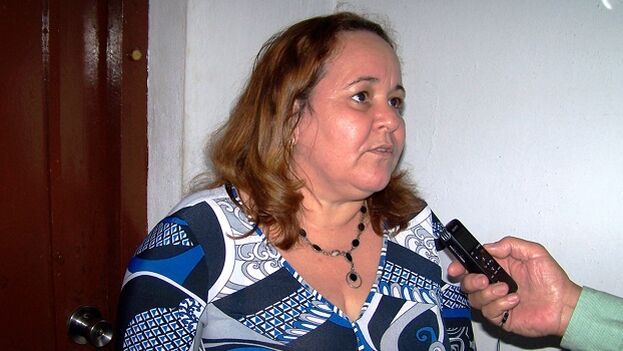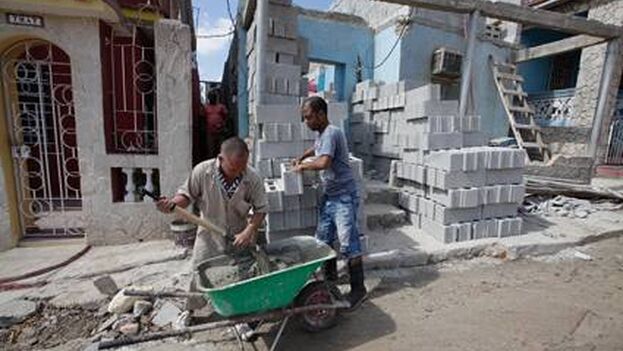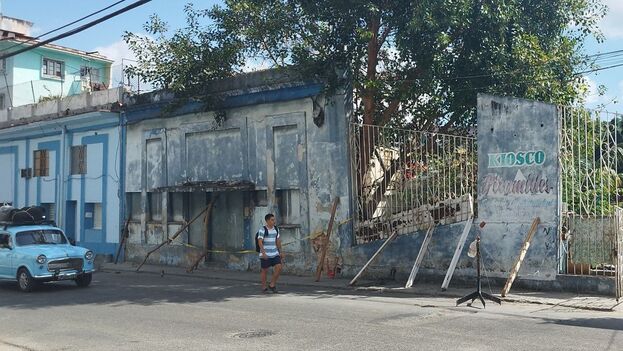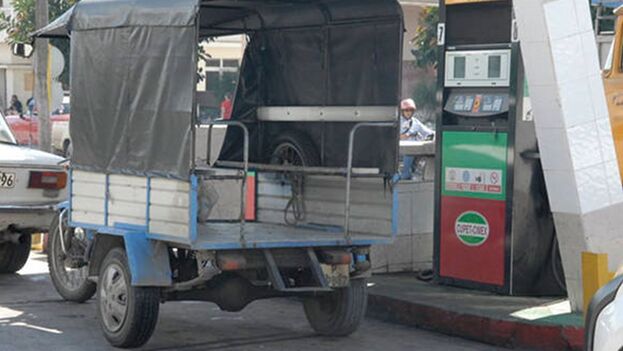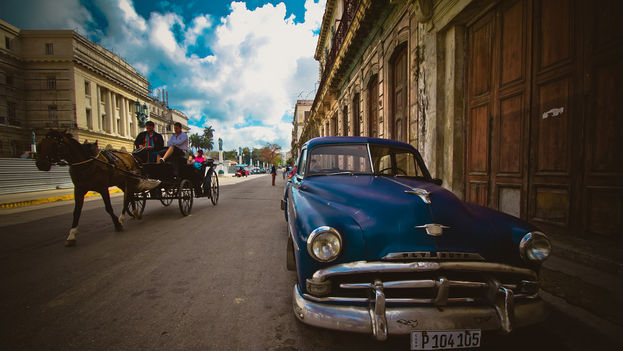“We need international and everyone’s support to demand freedom for the writer, sentenced to 7 years in prison,” requests PEN International in a statement released this Wednesday.
“On International Women’s Day, as we embrace the theme of equity, let us not forget the case of Cuban poet and activist Maria Cristina Garrido Rodríguez,” Zoe Rodríguez, President of the International Organization’s Women Writers Committee, said in the statement.
“Her unwavering courage in the face of unjust persecution serves as a reminder of the urgent need for equitable action in every society. Let us work towards a world where every woman is free to express herself without fear of punishment or persecution,” added Rodríguez. continue reading
“PEN International chooses figures from different parts of the world, imprisoned people, and campaigns for their freedom, which sometimes have results and other times do not,” the poet Luis de la Paz, president of the PEN Club of Cuban Writers in Exile, told EFE.
“Because it is Women’s Day, they took up the case of María Cristina Garrido to ask people to show solidarity with her, disseminate the information they have about this unjust imprisonment and write to figures of the apparatus of power in Cuba to get her released,” De la Paz commented.
“She is a very young writer (she was born in 1982), a lover of freedom like every writer, whom the Cuban government imprisoned after the protest that took place on the island in more than 48 cities. She was sentenced to seven years,” he said. the poet and also Cuban activist.
The writer María Cristina Garrido Rodríguez and her sister Angélica, who demonstrated on July 11, 2021 in San José de las Lajas (Mayabeque), were sentenced to 7 and 3 years in prison, respectively.
After her arrest, Garrido was beaten several times by the Cuban political police and subjected to forced disappearance for 18 days. Currently, she is incarcerated in the Guatao women’s prison, where “she has been subjected to cruel, inhumane and degrading treatment, such as isolation and beatings, and has been denied adequate food, water and sanitary conditions, as well as visits and family calls at some times.”
Last October, during the 88th congress of the organization held in Sweden, María Cristina Garrido “was visualized” with an empty chair in her name, noted De la Paz.
For their part, independent feminist activists in Cuba reiterated this Wednesday their demands regarding gender equality. Yo Sí Te Creo [Yes I Do Believe You] in Cuba (YSTC) demanded, for example, to have access to official figures on femicides – there are no official data – and a comprehensive law against gender violence.
The platforms reiterated on social networks the need to have shelters for victims of violence, to implement comprehensive protocols to care for them, as well as “the release of women and sexual dissidents detained for political reasons.”
The independent observatory Alas Tensas, in turn, reported the day before that it has verified 134 gender murders since it began recording these events in 2019.
The joint work between this platform and others that collect data on sexist violence made it possible to verify 14 femicides in 2019, 32 the following year, 36 in 2021 and a similar number last year.
For this reason they demand “the declaration of the State of Emergency due to Gender Violence” and condemn that they have not been heard.
A group of Cuban feminists demonstrated this March 8 in front of the Cuban Consulate in Barcelona against sexist violence and to demand the release of political prisoners on the Island.
Cuban feminist organizations have scheduled “international marches” in New York, Madrid, Uruguay and Barcelona to demand their rights and give voice to what they consider to be an alarming rise in cases of gender violence in the country.
“These marches on March 8 are intended to sensitize women in the international community about the real and unknown situation of Cuban women and to achieve solidarity at all levels,” the president of the Cuban Women’s Network, Elena Larrinaga de Luis, told EFE, gathered together with a group of women in front of the Cuban consulate, located in the center of Barcelona.
Cuban women will not be able to participate in the International Women’s Day event since they have been prohibited from demonstrating to demand their legitimate rights due to the absence of political freedoms in Cuba, explained Larrinaga de Luis.
They demand more state intervention and transparency since the government does not present official figures of the victims of gender violence. “Make a complaint to the world and show solidarity with the entire Cuban people,” argued one of the protesters, Kenia Hernández Barrera.
So far in 2023, Cuba has already suffered 16 femicides, almost two cases per week, according to the independent observatories Yo si te creo Cuba (YSTC) and Alas Tensas (OAT), in addition to the “increase” in disappearances and kidnappings of women and girls in the country.
Cuban women have also marched this March 8th (8M) due to the increase in “political persecution” in the country, with 992 political prisoners of which 136 are women, imprisoned for their ideas, according to data provided by the Cuban Observatory for Human Rights.
The protesters denounce the political repression and demand immediate freedom for all those imprisoned since the protests of 11 July 2021 (11J), when Cubans came out to demand respect for human rights, better living conditions and greater freedom of expression.
Cuban feminist organizations argue that the massive protests against the government marked a before and after in the country, increasing persecution and harassment against activists, journalists and relatives of political prisoners and the prohibition of any form of public dissent.
Teresa Rodríguez, one of the protesters and the mother of three young people imprisoned for 11J, explained to EFE: “I am here in front of the consulate to demonstrate against the dictatorship and in favor of the freedom of political prisoners in Cuba.”
“The great struggle from exile is to explain what it means to take up the dictates of a single party and the danger that dissenting implies for a person, and to understand that one lives in a country where violence is perpetrated against women from the public sphere and private,” Larrinaga de Luis pointed out.
Cuba is the only country in the Western Hemisphere that has not classified gender violence as a crime, and any social demand is understood as a challenge to the State, the activist added.
“The dictatorship has not created a law, not one, that is capable of defending women, the rights of women and the rights of girls,” said Kenia Hernández.
The great struggle of Cuban feminism, in addition to eliminating institutional and gender violence, is the “real recognition of the woman as such, as a natural person and subject of law,” highlighted the president of the Cuban Women’s Network.
Cuban feminist organizations have taken to the streets this Wednesday and have gathered in different cities to fight and give a voice to all those women residing in Cuba who have not been able to exercise their right to demonstrate on March 8.
____________
COLLABORATE WITH OUR WORK: The 14ymedio team is committed to practicing serious journalism that reflects Cuba’s reality in all its depth. Thank you for joining us on this long journey. We invite you to continue supporting us by becoming a member of 14ymedio now. Together we can continue transforming journalism in Cuba.
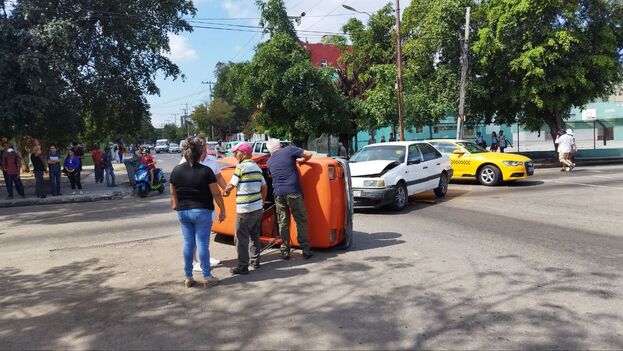
![]() 14ymedio, Juan Diego Rodríguez, Havana, 7 March 2023 – A traffic accident in Havana on Tuesday left two people with light injuries: the drivers of cars which collided at the intersection of Calle 17 and Avenida de los Presidentes (Calle G) on El Vedado.
14ymedio, Juan Diego Rodríguez, Havana, 7 March 2023 – A traffic accident in Havana on Tuesday left two people with light injuries: the drivers of cars which collided at the intersection of Calle 17 and Avenida de los Presidentes (Calle G) on El Vedado.